Problem: On raw sockets, recvfrom can capture more bytes than sendto can send, preventing me from retransmitting packets larger than MTU.
Background: I'm programming an application that will capture and retransmit packets. Basically host A sends data to X that logs them and forwards them to B, all Linux machines. I'm using raw socket so I can capture all data and it's created with socket(AF_PACKET, SOCK_RAW, htons(ETH_P_ALL)).
Then, there's code waiting for and reading incoming packets:
const int buffer_size = 2048;
uint8_t* buffer = new uint8_t[buffer_size];
sockaddr_ll addr = {0};
socklen_t addr_len = sizeof(addr);
int received_bytes = recvfrom(_raw_socket, buffer, buffer_size, 0, (struct sockaddr*)&addr, &addr_len);
Packet processing follows and the loop is finished with sending packet out again:
struct sockaddr_ll addr;
memset(&addr, 0, sizeof(struct sockaddr_ll));
addr.sll_family = htons(AF_PACKET);
addr.sll_protocol = eth_hdr->type;
addr.sll_ifindex = interface().id();
addr.sll_halen = HardwareAddress::byte_size;
memcpy(&(addr.sll_addr), eth_hdr->dest_mac, HardwareAddress::byte_size);
// Try to send packet
if(sendto(raw_socket(), data, length, 0, (struct sockaddr*)&addr, sizeof(addr)) < 0)
The problem is that I don't expect to receive packets that are larger than Ethernet MTU (1500 bytes) and I shouldn't since I'm using raw sockets that process each packet individually. But sometimes I do receive packets larger than MTU. I thought it might be error in my code but Wireshark confirms that as shown in the image, so there must be some reassembly going on at lower level like network controller itself.

Well, ok then I don't think there's a way to disable this for just one application and I can't change the host configuration, so I might increase buffer size. But the problem is that when I call sendto with anything larger than MTU size (actually 1514B, becuase of eth header) I get 80: Message too long errno. And that's the problem stated above - I can't send out the same packet I received. What could be possible solution for this? And what buffer size would I need to always capture whole packet?
EDIT: I have just checked on the machines with ethtool -k interf and got tcp-segmentation-offload: on on all of them, so it seems that it's really NIC reassembling fragments. But I wonder why sendto doesn't behave as recvfrom. If the packets can be automatically reassembled, why not fragmented?
A side note: The application needs to send those packets. Setting up forwarding with iptables etc. won't work.